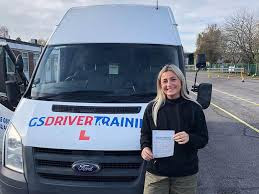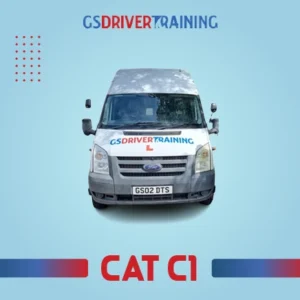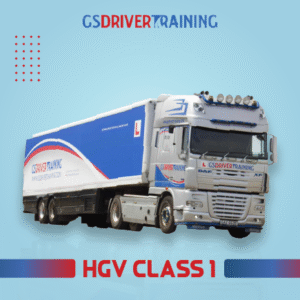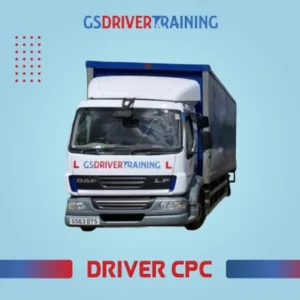If you’re looking to achieve your HGV (Heavy Goods Vehicle) Licence with professional CPC (Certificate of Professional Competence) training in Wiltshire, here’s a guide to help you get started:
1. Understand the HGV Licence Categories
Determine which category of HGV licence aligns with your career goals. Common categories include Category C (Rigid) and C+E (Articulated).
2. Research Local Training Providers in Wiltshire
Start by researching reputable HGV training providers in Wiltshire that offer comprehensive training programs, including CPC courses. Look for experienced instructors and positive reviews.
3. Check Eligibility Requirements
Verify the eligibility requirements for HGV training in Wiltshire. In most cases, you’ll need a regular car driving licence (Category B) before starting HGV driver training.
4. Enroll in an HGV Training Course with CPC
Contact your chosen training provider and enrol in an HGV training course that includes driver CPC training. Ensure the course covers both theory and practical aspects.
5. Prepare for the Theory Test
Utilise official DVSA resources and practice tests to prepare for the HGV theory test. The CPC theory test assesses your knowledge of road safety, vehicle operation, and professional competence.
6. Attend Practical Training Sessions
Participate in practical training sessions provided by your training school. These sessions will cover vehicle handling, safety procedures, and on-road driving skills specific to HGVs.
7. Vehicle Familiarisation
Spend time becoming familiar with the HGV you’ll be using during your training. Understanding the vehicle’s controls and features is crucial for theory and practical tests.
8. Mock Tests and Practice
Take advantage of mock tests and practice sessions offered by your training provider. This will help assess your readiness for both the theory and practical tests.
9. Practical Test Booking
Book your practical test through the official DVSA website when you feel confident and well-prepared. On test day, arrive early and ensure you have all required documents.
10. Obtain Your HGV Licence with CPC
Upon successfully passing the theory and practical tests, you’ll obtain your HGV licence with CPC. This qualification allows you to drive heavy goods vehicles legally and demonstrates your professional competence.
11. Explore Job Opportunities
Begin your job search for HGV driver positions in Wiltshire. Many logistics and transportation companies seek qualified drivers, and having your HGV licence with CPC enhances your employability.
12. Continuing Education
To enhance your skills and career prospects, consider further training or certifications, such as additional CPC modules or specialised endorsements.
Following this guide, you can successfully achieve your HGV licence with professional CPC training in Wiltshire and embark on a rewarding career as an HGV driver. Good luck with your training and future endeavours!

C1 training in Wiltshire
If you’re interested in C1 (Medium Goods Vehicle) training in Wiltshire, here’s a guide to help you get started:
1. Understand C1 Licence
The C1 licence allows you to drive medium-sized goods vehicles with a weight between 3,500kg and 7,500kg. This includes vehicles like ambulances, small box vans, and horseboxes.
2. Research Local Training Providers
Start by researching local driving schools or training providers in Wiltshire that offer C1 training. Look for those with experience in providing C1 driver training.
3. Check Eligibility Requirements
Verify the eligibility requirements for C1 training. In most cases, you’ll need a regular car driving licence (Category B) before starting C1 training.
4. Enrol in a C1 Training Course
Contact your chosen training provider and enrol in a C1 training course. Ensure the course covers both theory and practical training.
5. Theory Test Preparation
Prepare for the theory test, which covers essential knowledge about operating medium goods vehicles and road safety. Use official DVSA resources and practice tests to prepare effectively.
6. Practical Training
Attend the practical training sessions provided by your training school. These sessions will teach you how to operate C1 vehicles, including vehicle handling, safety procedures, and on-road skills.
7. Vehicle Familiarisation
Spend time getting familiar with the C1 vehicle you’ll use during your training. Understanding the vehicle’s controls and features is essential.
8. Mock Tests and Practice
Utilise mock tests and practice sessions offered by your training provider to assess your readiness for the practical test.
9. Practical Test Booking
Book your practical test through the official DVSA website when you feel prepared. On test day, arrive early and ensure you have all required documents.
10. Obtain Your C1 Licence
If you pass the practical test, you’ll obtain your C1 driving licence, allowing you to drive medium-goods vehicles legally.
11. Job Opportunities
With a C1 licence, you can explore job opportunities that involve driving medium-sized goods vehicles. These may include roles in delivery, transportation, or specialised services.
12. Continuing Education
Consider further training or certifications to enhance your skills and job prospects.
Following this guide, you can complete C1 training in Wiltshire and gain the necessary skills to drive medium goods vehicles. It’s a valuable qualification for those seeking opportunities in the transportation and logistics industry.

D1 Training in Wiltshire
If you’re interested in D1 (Minibus) training in Wiltshire, here’s a guide to help you get started:
1. Understand D1 Licence
The D1 licence allows you to drive minibuses with more than eight passenger seats, up to a maximum of 16. If you’re looking to drive larger vehicles, this licence is essential.
2. Research Local Training Providers
Begin by researching local driving schools or training providers in Wiltshire that offer D1 training. Look for reputable providers with experienced instructors.
3. Check Eligibility Requirements
Verify the eligibility requirements for D1 training. In most cases, you’ll need a regular car driving licence (Category B) before starting D1 training.
4. Enrol in a D1 Training Course
Contact your chosen training provider and enrol in a D1 training course. Ensure the course covers the theory and practical training required for D1 licence acquisition.
5. Theory Test Preparation
Prepare for the theory test, which covers essential knowledge about operating minibuses and road safety. Use official DVSA resources and practice tests to prepare effectively.
6. Practical Training
Attend the practical training sessions provided by your training school. These sessions will teach vehicle handling, safety procedures, and on-road driving skills specific to minibuses.
7. Vehicle Familiarisation
Spend time getting familiar with the D1 minibus you’ll use during your training. Understanding the vehicle’s controls and features is crucial.
8. Mock Tests and Practice
Utilise mock tests and practice sessions offered by your training provider to assess your readiness for the practical test.
9. Practical Test Booking
Book your practical test through the official DVSA website when you feel confident and well-prepared. On test day, arrive early and ensure you have all required documents.
10. Obtain Your D1 Licence
If you pass the practical test, you’ll obtain your D1 driving licence, allowing you to drive minibuses with more than eight passenger seats legally.
11. Explore Job Opportunities
With a D1 licence, you can explore job opportunities that involve driving minibuses, such as working with schools, community organisations, or private transport services.
12. Consider Further Specialisation
Depending on your interests and career goals, consider further training or certifications to enhance your skills and job prospects.
Following this guide, you can complete D1 training in Wiltshire and gain the necessary skills to drive minibuses. It’s a valuable qualification for those seeking opportunities in passenger transportation and related industries.

FAQ (Frequently Asked Questions)
1. What is HGV Training in Wiltshire?
HGV training in Wiltshire is a comprehensive program designed to equip individuals with the skills and knowledge required to become professional Heavy Goods Vehicle (HGV) drivers.
2. Where Can I Find HGV Driver Training Courses in Wiltshire?
You can find HGV training courses in Wiltshire at accredited training centres. Look for high-quality courses covering the theory and practical aspects of HGV driving.
3. What Does LGV Driver Training Entail?
LGV (Large Goods Vehicle) driver training involves instruction on handling larger vehicles, covering vehicle operation, safety procedures, and on-road driving skills.
4. Are There Training Centres in Swindon and Salisbury for Driver Training?
Yes, Swindon and Salisbury have training centres offering a range of training courses, including HGV and CPC driver training.
5. What is CPC Driver Training?
CPC (Certificate of Professional Competence) driver training is essential for HGV drivers. It covers various modules to ensure drivers maintain high standards of safety and professionalism.
6. Can I Find High-Quality HGV Driver Instructors in Wiltshire?
Wiltshire has high-quality HGV driver instructors at reputable training centres. These instructors play a crucial role in providing thorough and practical training.
7. How Can I Prepare for the Driving Test in Wiltshire?
Enrol in a comprehensive HGV driver training course to prepare for the driving test in Wiltshire. Practice sessions, mock tests, and guidance from experienced instructors contribute to adequate preparation.
8. Are Training Courses Flexible in Wiltshire?
Many training centres in Wiltshire offer flexible course options to accommodate different schedules. Whether you prefer full-time intensive training or part-time courses, options are available.
9. What are the Key Benefits of Completing HGV Training in Wiltshire?
Completing HGV training in Wiltshire opens up opportunities for a rewarding career in the transportation and logistics industry. It enhances your skills, employability, and job prospects.
10. Can I Find Driver CPC Training in Wiltshire?
Absolutely. Wiltshire provides Driver CPC training to ensure HGV drivers stay updated on industry regulations and maintain professional competence.
11. How Do I Choose the Right Driver Training Centre in Wiltshire?
When choosing a driver training centre in Wiltshire, consider factors such as reputation, instructor expertise, course content, and reviews from past students.
12. What Happens During the Driving Test for HGV Drivers?
The driving test for HGV drivers in Wiltshire assesses your ability to operate the vehicle safely and adhere to road regulations. It includes both practical driving and manoeuvring assessments.
Explore the diverse range of driver training courses available in Wiltshire to kickstart or advance your career as an HGV driver. Contact local training centres for personalised guidance and course details.
13. What Does HGV Training in Wiltshire Typically Include?
HGV training in Wiltshire is a comprehensive program designed to prepare individuals for a career as professional Heavy Goods Vehicle (HGV) drivers. It covers theoretical and practical aspects, including vehicle operation, safety procedures, and road regulations specific to the Wiltshire area.
14. How Can I Identify a High-Quality HGV Driver Training Program in Wiltshire?
Identifying a high-quality HGV driver training program in Wiltshire involves considering factors such as the training centre’s reputation, the instructors’ expertise, the curriculum’s comprehensiveness, and feedback from past students. Look for accredited and well-established training providers for the best results.
15. Why is Driver CPC Important for HGV Drivers in Wiltshire?
Driver CPC (Certificate of Professional Competence) is crucial for HGV drivers in Wiltshire as it ensures they maintain high standards of safety and professionalism. The periodic training required for CPC covers various modules, keeping drivers updated on industry regulations and enhancing their career competence.
Also Read: HGV Training Courses in Dorset
D1 licence (Category)
car Driving Licence (Category)
Horse Box Course (Category)
CE Driving License









